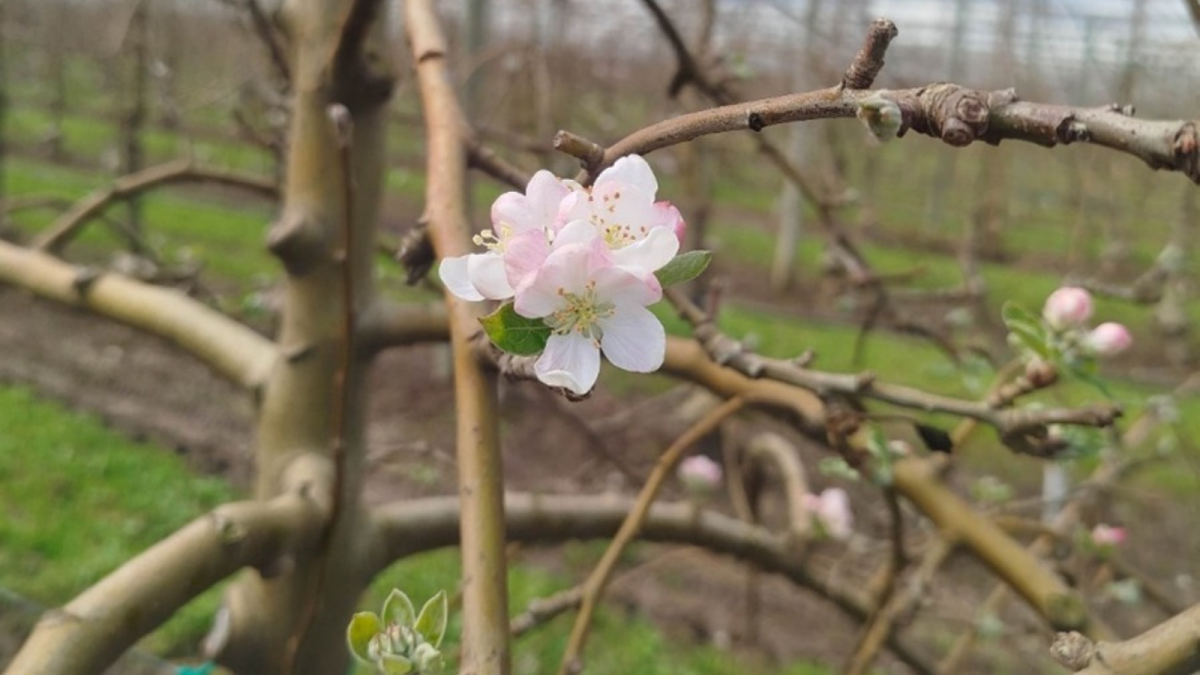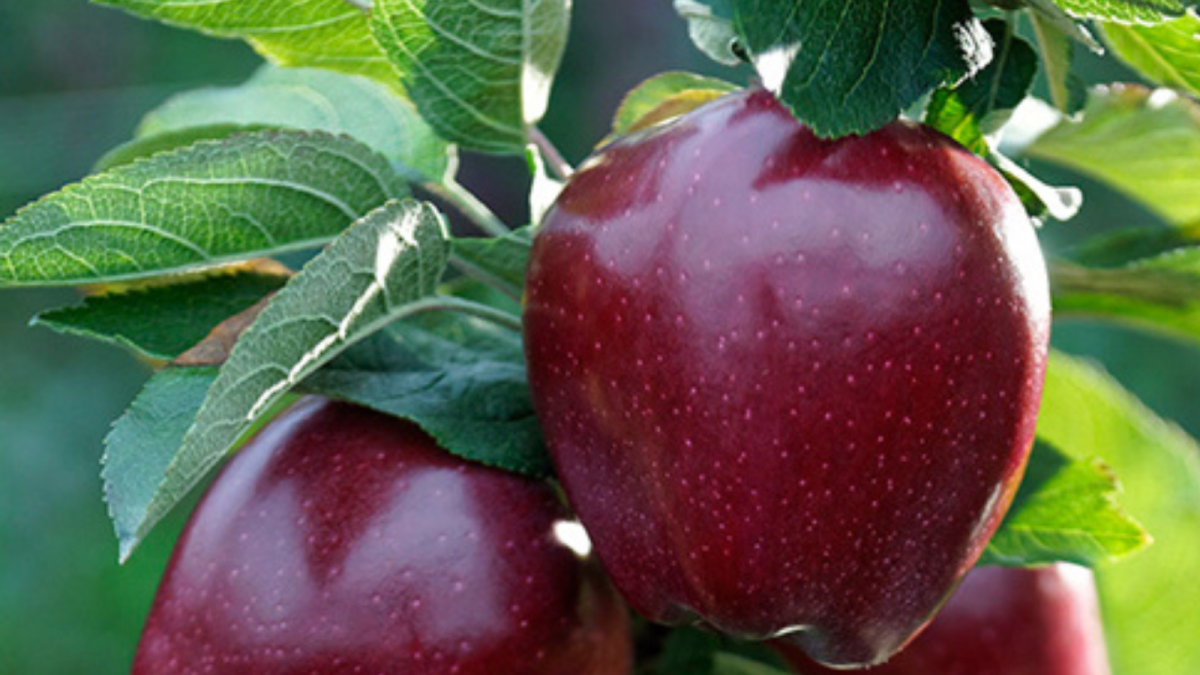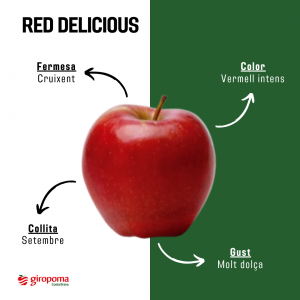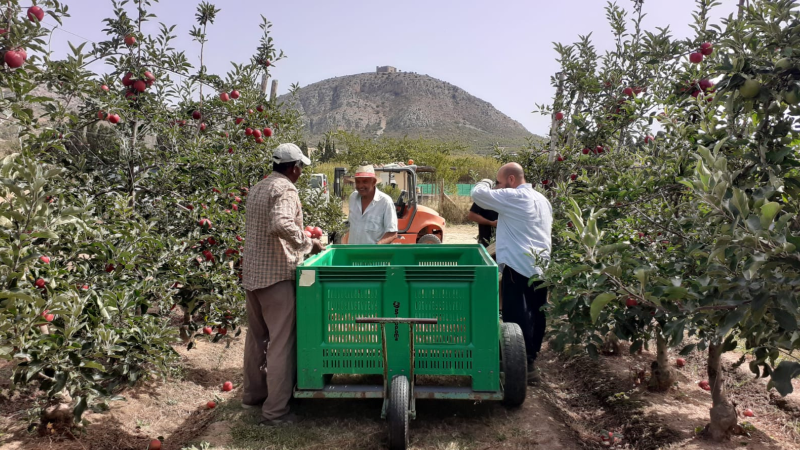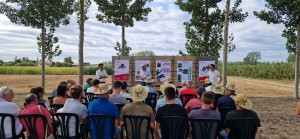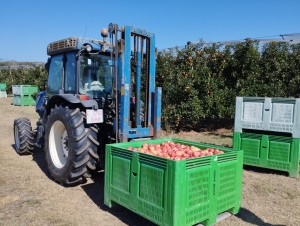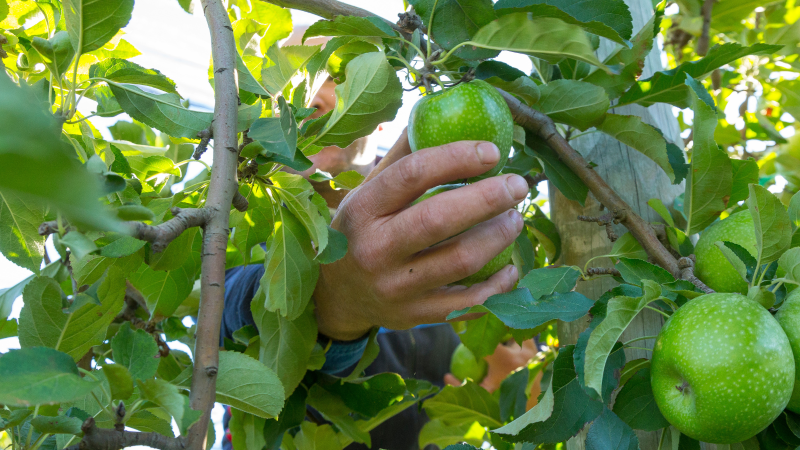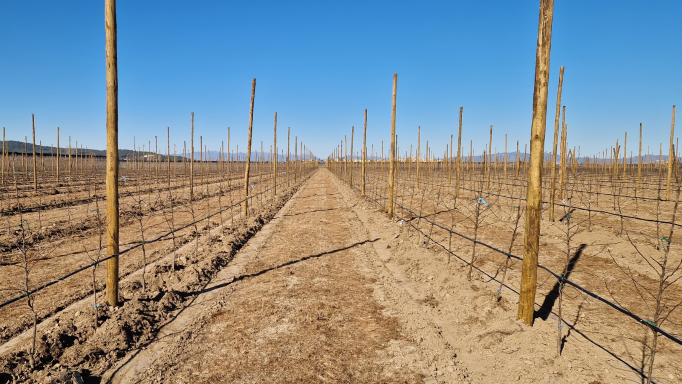In Giropoma‘s orchards, spring marks the beginning of a key stage in the biological cycle of apple trees: bud break and flowering. This process, which usually takes place between the end of March and the first half of April, is the starting point of the productive season and has a direct impact on the quality and quantity of the harvest.
These are mainly conditioned by the progressive increase in temperatures and the longer daylight hours typical of this time of the year. These conditions favor the emergence of the first buds and the opening of flowers, which are essential for future fruiting.
Flowering has a direct relationship with the productive potential of trees. An abundant and well-developed flowering represents a greater number of potential fruit. However, to ensure the final quality of the apple, it is essential to thin the fruit, a practice that allows the productive load to be controlled and favors the development of the best positioned specimens.
The process that transforms a flower into a quality apple depends on several key factors. First, proper fertilization is essential for the blossom to develop into fruit. Subsequently, the proper supply of nutrients and water will determine whether the fruit achieves the desired size and characteristics.

